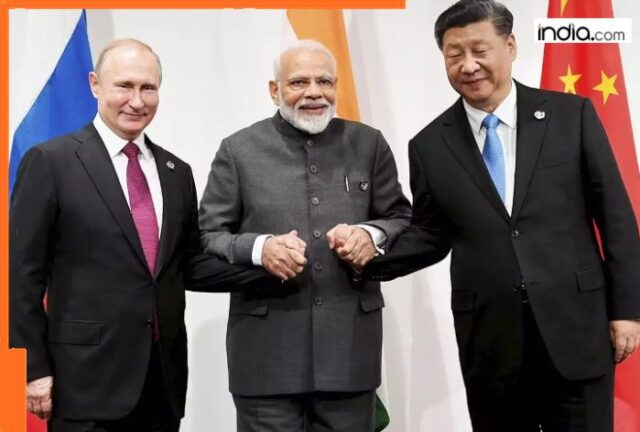Amid the Trump tariff war threats, reports have emerged that BRICS nations, including arch rivals India and China, along with Russia, Brazil and South Africa, are formulating a strategy to act as a bulwark against the US President’s aggressive economic policies.
Trump Tariff War: Donald Trump has been an agent of chaos since assuming office for his second and final term as the President of the the United States of America, with analysts expressing fear that this radical economic policies, especially infamous tariff war tactics, could not only trigger a recession in the US, but also have severe repercussions on the global economy.
However, amid the Trump tariff war threats, reports have emerged that BRICS nations, including arch rivals India and China, along with Russia, Brazil and South Africa, are formulating a strategy to act as a bulwark against the US President’s aggressive economic policies. In an interview with the Business Standard, Brazil’s Ambassador to India, Kenneth da Nobrega, said that BRICS nations are discussing possible methods to trade in their respective currencies in wake of the current economic threat posed by Trump’s policies.
BRICS nations mulling dollar alternative
Shedding light on key matters such as the strategy of BRICS countries to deal with US tariff threats, growing bilateral cooperation between Brazil and India, and the priorities of this year’s COP30 summit, Nobrega said that BRICS members are discussing ways to promote trade financial transactions in their national currencies, in an effort to reduce dependency on the US dollar.
The Brazilian ambassador said the move is aimed to strengthen economic ties between member nations as well as to create a more democratic and diverse international economic environment. He stressed that the proposed mechanism is not against any particular currency, but designed to provide member countries with more flexibility in their trade.
Nobrega also said that India and Brazil are exploring new ways to advance bilateral cooperation in a variety of areas such as medicines, renewable energy, defence and agriculture, adding that the COP30 summit will focus on implementing the Paris Agreement, new collective targets for climate finance, and mobilizing more resources for climate action.
US dollar dominance
Notably, India has already announced that it would reject any proposal of a BRICS currency supported by Russia and China. New Delhi’s response came after Donald Trump warned BRICS nations against replacing the dollar in their bilateral, failing which the US would impose 100% tariffs on them, making it difficult to sell their goods in America.
Talking to reporters at the White House during a meeting with Prime Minister Narendra Modi, Donald Trump had asserted that the “BRICS is dead”.
The US dollar is the currently the dominant currency in global trade, and the arrangement helps America maintain its economic hegemony over other countries. The dollar dominance also provides other benefits to the US, such as getting loans at low-interest rates.
Any proposal of choosing an alternative for the dollar results in the US coming down heavily on these nations, imposing higher tariffs, and even sanctions at times.
















































